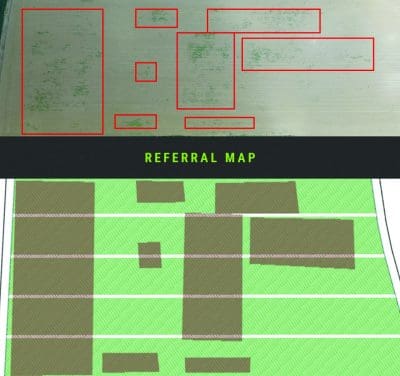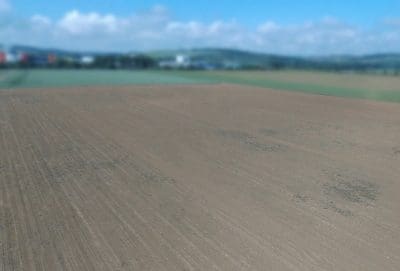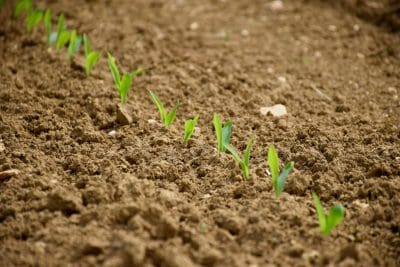IN a research project underway in France agricultural robots are proving their ability to plant and grow 50 hectares of maize completely autonomously.
The trial is part of the “Challenge Centéol 2018” project which aims to promote smart farming and to reduce soil compaction and inputs while maintaining yields.
French company Agreenculture and its partners have developed three autonomous diesel-powered farming devices weighing about 300kg each, and which run on tracks to minimise ground pressure.
See video of one of the units in operation in the tweet below:
Coming to an end with starter fertilizer and planting 👏
Great job done ✅ Few things to improve such as engine cooling!#Robotics #Farming #Summer #NakedRobots #Centeol2018 pic.twitter.com/e2c3y2QhvL— Challenge Centeol (@C_Centeol) May 25, 2018
The machines are designed to work simultaneously through operations such as ground preparation, planting, fertilising and weed control.
They incorporate technologies such as geo-positioning and artificial intelligence to give them the ability to collect and to adjust to their agricultural environment as they perform high-precision tasks.
The robots work from maps, either already in place or produced themselves, as they move around the paddock.
The project requires the production of charging station capable of filling the tanks of the robots in various inputs such as seed, fertilizer or water.
The production of software was also necessary to enable the robots to use artificial intelligence to work on the same surface without hindrance and to be able adapt to their agricultural environment.
The Centéol challenge takes place over 12 months through to October 2018 and comprises six key steps:
- October 2017: Soil analysis: the robot pulls a soil analysis tool and takes a measurement every five meters to determine the potential and the lack of soil. A very precise map of the plot is extracted.
March 2018: Preparation of the grooves: Two robots will work only the width of the groove in which the seed will be deposited.
April 2018: Modulation of sowing and localized fertilization: Three robots work simultaneously on the same plot. The first has the fertilizer. The other two sow by modulating the density of the seedling according to the characteristics of the soil.
May 2018: Post-emergent fertilization: The two robots bring the correct dose of nitrogen to corn.
June 2018: Weed control: both robots evolve to weed corn up to three times
October 2018: Harvest.
Five different tools have been developed to attach to the robots to enable them to complete their tasks:
Take a look at the robot equipments. High five ✋#Centeol2018 pic.twitter.com/JL0pYtk6Ja
— Challenge Centeol (@C_Centeol) April 19, 2018
The robots have a 24-hour autonomous run time.
The only human-controlled job will be harvesting the crop.
Also involved in the Centeol Challenge are machinery firm Kuhn, seed supplier Dupont Pioneer and technology engineering firm the Ausy Group.
Centeol is named in honour of Centeotl, the Aztec God of Maize.
https://www.agreenculture.net/copy-of-challenge-centeol-2018?wix-vod-comp-id=comp-jhc651i2#





HAVE YOUR SAY